LET US HELP
Welcome to Capella
Select your program and we'll help guide you through important information as you prepare for the application process.
FIND YOUR PROGRAM
Connect with us
A team of dedicated enrollment counselors is standing by, ready to answer your questions and help you get started.

- Doctor of Education
- Reading and Literacy

EdD in Reading and Literacy Doctor of Education
Lead district and adult education efforts to expand students’ minds and help them harness the power of reading. Capella’s online Doctor of Education (EdD), Reading and Literacy degree is designed to prepare you to lead literacy programs and advocate for systemic change in education. You’ll develop the knowledge and skills needed to work with diverse populations as a reading specialist, coach, coordinator, or program supervisor. Plus, learn ways to engage in a research cycle that results in data-informed decisions.
Foundational coursework
Build a solid base for your program with coursework that focuses on research and critical thinking—and prepares you for success as a doctoral student.
Capstone: doctoral project
Your doctoral project provides the opportunity for you to solve a real-world problem in your field.
Apply today with no application fee.
At a glance
- 5 Core courses
- 5 Specialization courses
- 6 Doctoral project courses
- 0 Max transfer credits
With Capella Tuition Cap, you won't pay more than $32,000* in tuition costs for your degree.
*Eligibility rules and exclusions apply. Connect with us for details.
Courses and skills
Explore reading and literacy courses.
- This program requires a total of 64 quarter credits
- You’ll need to complete 16 core courses and one capstone
What you'll learn
This specialization provides a comprehensive framework for the instruction and assessment of reading and literacy in P-12 and adult education settings. It draws on professional standards to help you advance your career.
On successful completion of this degree program, you should be able to:
- Analyze theoretical and evidence-based foundations of reading and writing processes and instruction
- Design evidence-based literacy instruction and curricula to meet the needs of all learners
- Select and evaluate valid, reliable, fair, and appropriate assessment tools to screen, diagnose, and measure student literacy achievement
- Formulate plans that promote professional development as a career-long effort and responsibility
- Plan for the integration of digital technologies to support a literacy-rich learning environment
- Demonstrate the knowledge, skills, and dispositions to work collaboratively and ethically with diverse learners, their families, the community, and other educators
Review the Capella career exploration guide to learn more about this program and career opportunities.
Tuition and learning format
How much does the doctor of education (edd) cost.
The total cost of your degree will depend on academic performance, transfer credits, scholarships and other factors. See GuidedPath cost information below.
A more structured learning format with an active peer community and faculty guidance. We’ll set the schedule, you meet the deadlines.
- Based on the quarter system; 1–2 courses per 10-week quarter
- 1 semester credit = 1.5 quarter credits
- Weekly assignments and courseroom discussions
- Pay for what you take, price varies by courseload or term
Learn more about GuidedPath »
$765 per credit, 64 coursework credits, 0 max transfer credits
Tuition breakdown
Program phases.
$765 Per quarter credit
64 coursework credits
Per quarter credit
Resource kit fee
$175 Per quarter
Coursework phase only; includes eBooks, textbooks, interactive media, software, course packs, articles, test kits, and other instructional materials
Per quarter
Application fee
$0 no application fee
no application fee
Total Tuition Cap
Capella Tuition Cap
$32,000 Total tuition
- Pay no more than $32,000 in total tuition for your degree*
- Available to all students who start now through Jan. 6, 2025
*Eligibility rules apply. Books, course materials, supplies, equipment and other fees apply. Travel expenses for residency, practicum, etc., are not covered by the tuition cap.
Details and full eligibility requirements »
Total tuition
Tuition and program length are unique to you
Your total tuition and program length depend on a variety of factors:
- Academic performance
- Complexity of your capstone
- Number of quarters spent working on capstone
- Prior coursework
- Scholarships and finances
- Unexpected life events
- School/work/life balance
- Employer and/or military benefits
About cost scenarios
The cost scenarios below are examples based on general program pricing and 2024–25 Capella tuition rates and assume the average number of transfer credits a student brings into the program. Pacing and pricing information is current as of Jan. 1, 2024. These rates are the same nationwide and may change depending on factors affecting program length and price. You are responsible for paying your own travel costs related to residencies, including plane, hotel, and food expenses.
To discuss whether the specialization you’re interested in has additional factors that may affect program cost and length, contact a Capella enrollment counselor.
Cost scenarios
*Eligibility rules and exclusions apply. Connect with us for details. Capella Tuition Cap is available to students who start now through Jan. 6, 2025.
Get the details
Connect with an enrollment counselor to further discuss the cost of the program and explore your eligibility for scholarships and discounts.
Scholarships and savings
Are there scholarships available for doctoral degrees.
Your education is an investment in your future that’s within your reach. There are more ways to save than you might think.
Federal grants
The U.S. Department of Education provides grants that can be used to pay for education expenses, including doctoral program tuition and fees. Explore federal grants
Federal work-study program
The U.S. Federal Work-Study (FWS) program provides funds for part-time work to help college students finance their educations. Learn more
10% military discount
Capella offers a tuition discount to active-duty service members, guard and reserve members, veterans, their spouses and dependents.
Accredited and recognized
Capella is accredited by the higher learning commission..
Accreditation and recognitions provide assurance that we meet standards for quality of faculty, curriculum, learner services, and fiscal stability. See all our accreditations and recognitions .
How to apply
What are the edd admission requirements.
Applicants must provide the following information for admission to Capella programs and specializations:
- A master’s degree from an institution accredited by an agency recognized by the U.S. Department of Education, or from an internationally recognized institution
- Your official master’s transcripts, with a minimum grade point average of 3.0 or higher on a 4.0 scale
- A valid, government-issued form of photo identification
GRE and GMAT are not required for admission.
International Student Requirements
If you completed your most recent academic coursework, degree, or credential at an institution outside the United States, regardless of your citizenship or where you currently live, you are considered an international applicant.
In addition to the above admission requirements, you will need to submit these materials:
- Minimum score on acceptable test for proof of English proficiency
- Transcript evaluation
Learn more about international student admissions .
Faculty and support
What support does capella offer online students.
Our programs are designed to meet the unique needs of doctoral students. We’ve structured the experience in manageable pieces that build on one another to help you earn your doctorate. You’ll have support from faculty, staff, and online resources along the way.
Doctorate faculty
Work with faculty members who have years of experience and specialize in their areas of expertise throughout each phase of your program, including literature review and implementation planning.
Enrollment counselors
These specialists can provide details about your chosen doctoral program. They help you understand the differences among specializations, and help you identify which is the best fit for you. They can also help you with the admissions process.
Academic coaches
Through quarterly appointments and as-needed coaching sessions, these specialists introduce you to Capella and help you tailor your program to your personal goals and experiences.
Articles and resources
Expand your perspective on academic and career topics with articles and resources from Capella University.

5 reasons to incorporate technology into your classroom
Students are already interested and engaged in technology, and teachers can harness that attention for educational purpose.

Education program guide
Get details on the education programs at Capella University, including learning formats, financing options and more.

Reading apps can help build children's technological proficiency
Discover the 10 must-have literacy apps for early childhood educators.
Career exploration
What can you do with a edd in reading and literacy degree.
Your education can help you reach your professional and personal goals. Here are some of the jobs and employment settings to explore with an EdD in Reading & Literacy.
Related job titles to explore*
- University faculty of education
- Reading specialist
- Adult basic education director
- Literacy coach
- Curriculum designer
- Educational consultant
- Director of reading or literacy program
Employment settings to explore
- Colleges, universities, and professional schools
- P-12 public, private, virtual, or charter schools
*These are examples intended to serve as a general guide. Some positions may prefer or even require previous experience, licensure, certifications, and/or other designations along with a degree. Because many factors determine what position an individual may attain, Capella cannot guarantee that a graduate will secure any specific job title, a promotion, salary increase, or other career outcome. We encourage you to research requirements for your job target and career goals.
Take the first step toward earning your degree and achieving your goals. {page-tel}
Are you sure you want to cancel?

5 Best Grad Schools with Online Doctorate in Reading & Literacy
Reviewed by David Krug David Krug is a seasoned expert with 20 years in educational technology (EdTech). His career spans the pivotal years of technology integration in education, where he has played a key role in advancing student-centric learning solutions. David's expertise lies in marrying technological innovation with pedagogical effectiveness, making him a valuable asset in transforming educational experiences. As an advisor for enrollment startups, David provides strategic guidance, helping these companies navigate the complexities of the education sector. His insights are crucial in developing impactful and sustainable enrollment strategies.
Updated: March 13, 2024 , Reading time: 14 minutes
Share this on:

Find your perfect college degree
In this article, we will be covering...
Reading and literacy are part of our everyday lives. According to a study, about 130 million Americans struggle with low literacy skills—54% of teens and adults are reading below the sixth-grade level. Those struggling in these areas risk falling behind in academics and life in general.
A doctorate in reading and literacy program is best pursued by those who want to gain the appropriate abilities to analyze current theories and apply literacy research to develop more effective strategies in teaching reading and literacy to all age brackets.
An online Doctor of Reading And Literacy degree program provides students with the same on-campus curriculum. While having different focuses, EdDs and PhDs in literacy education prepare professionals for literacy instruction, educational leadership, and curriculum development positions.
This doctorate helps students gather the skills and knowledge necessary for research to advance language development and literacy acquisition.
Methodology
The Best Online Doctoral Degree Programs in Reading and Literacy online were picked based on the following factors:
- Offers online/hybrid coursework designed to fit the demands of working advanced degree seekers,
- Provides online students with various opportunities dedicated to student success, including online student resources, academic advising, and financial aid,
- Allow online doctoral students to learn from the same esteemed on-campus faculty and advisors,
- Has a good reputation and standing in various reputable organizations,
- Uses an updated curriculum that meets the needs of 21st-century learning,
- Has obtained full accreditation from regional accrediting agencies to ensure the degree’s value in the market.
Read our Methodology for more details on our ranking process.
Top 5 Online Doctorate in Reading and Literacy Programs
Appalachian state university.

Doctor of Education in Educational Leadership: Emphasis on Literacy in Exceptionalities
Appalachian State University’s online EdD in Literacy and Exceptionalities is among the top programs for graduate students seeking advanced reading and literacy education training. The program’s coursework focuses on teaching education professionals to use multimodal expressive arts theory and inquiry in pre-K-12 settings. Students will receive training that allows them to apply for leadership positions in this setting.
The core coursework of the program includes Theoretical Frameworks for Social Inquiry & Practice, Educational Organizations and Technology, and Curriculum History, Theory, and Practice in Educational Organizations. Upon completing the required courses, students must intern in a prekindergarten setting for a year. The learner will participate in exercises to make the connection between theory and practice crystal evident.
A master’s degree from an accredited school, and with a GPA of 3.0 or higher is required. Prospective doctoral candidates must also submit their GRE scores, a statement of intent, and letters of recommendation.
St. John’s University

Doctor of Philosophy in Literacy
St. John’s University’s PhD in Literacy allows students to complete coursework online. This program focuses on advancing literacy instruction in various settings, whether within formal or informal education settings. While being one of the most research-intensive doctorates, students who enroll full-time can complete the degree in as little as three years. The program fosters collaboration with peers, teachers, faculty, and administrators.
Students have two concentration options within the literacy education doctorate. They can specialize in Teaching English to Speakers of Other Languages (TESOL) or Literacy (focused on kindergarten to high school literacy instruction).
Students in either concentration must complete 42 credit hours, including a dissertation. Core literacy courses include Foundations of Literacy Inquiry and Professionalism, Models & Processes of Reading & Writing Acquisition & Competency, and Literacy Leadership.
Prospective students must have a graduate degree (master’s or specialist) in any field with a 3.2 GPA or higher and a MAT/GRE score. Additional application requirements include a resume/CV, two letters of recommendation, and official transcripts of all previous degrees and coursework.
Capella University

Doctor of Education in Reading and Literacy
The online EdD in Reading and Literacy at Capella University is designed for students seeking to enroll in a practice-based doctoral program. The program requires students to complete 64 credit hours—with zero transfer credits—including a Capstone: doctoral project, which requires students to choose a specific literacy issue and conduct research to help solve it. The program’s curriculum is designed to help with literacy assessment in P-12 to adult education settings.
Using industry standards to support career advancement, students will explore courses discussing equity and social justice, theoretical and historical reading foundations, reading and literacy evaluation, assessment, and decision-making.
Online students can apply for scholarships and savings opportunities to reduce the overall cost of their education. Students can tailor their degrees by choosing a specialization with the help of the program’s academic coaches and faculty.
Although GRE and GMAT scores are not required for admission, interested applicants must have a minimum of 3.0 GPA in their official master’s transcripts. All previously earned degrees should be from accredited institutions.
Texas A&M University

Doctor of Philosophy in Curriculum and Instruction: Reading and Literacy
Texas A&M University’s online Ph.D. in Curriculum and Instruction offers a Reading and Literacy Education designed for students seeking literacy processes, literacy teaching, and literacy assessment preparation.
Due to the nature of Ph.D. programs, prospective students should expect a research-based curriculum that explores literacy theories and research in-depth. Students will receive training in various research methodologies and a possible mentored residency experience.
Emphasizing Advanced Literacy to Teach and Learn Across Disciplines, Practicum in Literacy Intervention, Organization and Supervision of Reading Programs, and Literacy and Language are some required reading and literacy coursework.
Students can choose their electives to align the program with their career aspirations. Electives include Children’s Literature and Literacy; Multicultural Children’s Literature and Literacy; Writing: Development, Assessment, and Instruction; Elementary Literacy Instruction for Facilitating STEM Learning; and STEM Teaching and Learning.
Applicants must have a master’s degree from a regionally acknowledged institution. Additional requirements include official transcripts, writing essays, resumes/CVs, and purpose statements.
Indiana University Bloomington

Doctor of Education in Literacy, Culture, and Language Education
Indiana University Bloomington’s EdD in Literacy, Culture, and Language Education is among the most comprehensive online reading and literacy doctorates. This is a 60-credit hour doctorate dedicated to advancing students’ leadership abilities in environments that produce and provide inclusive educational resources.
Students participate in research and advanced study in literacy practices and policies focusing on comprehending and meeting the requirements of learners from various backgrounds.
This online degree explores courses in curriculum design, language development, multicultural education, and the influence of culture on learning and literacy acquisition. The maximum time frame for this degree is seven years.
However, students who follow the suggested course sequencing can complete coursework in three years. Doctoral students can apply for up to 18 transfer credit hours from their master’s degree to reduce the required credit hours of the doctorate program.
A bachelor’s degree with a 2.75 GPA is required in addition to a master’s degree—both must be from a reputable accredited institution. However, students with a degree from a non-accredited institution can be considered if they meet high GRE scores. Supplemental requirements include a personal statement, resume, and letters of recommendation.
Common Coursework in Online Doctorates in Reading and Literacy
Assessment and diagnosis of reading difficulties.
Students learn about numerous evaluation techniques and instruments to spot reading issues and disabilities. They learn how to decipher evaluation findings and formulate effective intervention plans.
Cultural and Linguistic Diversity in Literacy Education
The effect of language and culture on the development of literacy is examined in this course. Students investigate methods for assisting different students in literacy lessons.
Digital Literacy and Technology Integration
Students investigate how to incorporate digital resources to enhance their reading and writing skills and explore the role of technology in literacy instruction.
Language Development and Linguistics
Students gain knowledge of language acquisition and the function of linguistics in teaching literacy. Phonetics, phonology, morphology, syntax, and semantics are all covered in this course.
Literacy Instruction and Curriculum Design
This course focuses on teaching literacy effectively, including fostering students’ reading, writing, and understanding abilities. Students investigate research-based teaching strategies and create a literacy curriculum.
Literacy Intervention and Remediation
This coursework aims to develop and put into practice targeted treatments for students who struggle with reading, including those with dyslexia and other learning impairments.
Literacy Program Evaluation and Assessment
Students study the evaluation and assessment of these programs to determine the efficacy of literacy programs and make fact-based judgments.
Research Methods
This explores the research methods employed in literacy studies. They acquire the skills to plan and conduct empirical research in reading and literacy.
Literacy Theories and Models
Students will learn about several theoretical models and frameworks that support literacy development and instruction. It looks at reading and literacy from both historical and modern viewpoints.
Admission Requirements for Online Doctorates in Reading and Literacy
Admission requirements for online doctorates vary from school to school. For example, some schools only accept students with master’s degrees from accredited colleges and universities, while some accept applicants with non-accredited master’s degrees as long as they have high GRE scores.
Furthermore, departmental requirements may or may not require doctoral applicants to have teaching experience, licenses, and certifications.
However, the most common requirements include:
- Two to three letters of recommendation,
- Writing samples,
- Application letters,
- Application fee,
- Resume/CV, and
- Official transcripts
Most doctoral degree programs, online and on-campus, have a holistic approach to their admissions process. These schools evaluate students based on their overall capacity to succeed in the program instead of just looking at their undergraduate and graduate degree GPAs.
To increase your chances of gaining admission to a doctoral program, you need to secure at least two recommendation letters from well-established professionals in education. LORs will highlight your achievements, strengths, and suitability for the program. You can ask your previous instructors or employers to write you a recommendation letter.
Schools will also look at your writing skills. Students in doctoral programs must do original research, prepare a dissertation, or complete other research-intensive coursework. For complex research findings, analyses, and conclusions to be appropriately communicated clearly and cohesively, excellent writing abilities are necessary.
Certifications and Licensure for Reading and Literacy
Certifications and licensures are great additions to formal degrees. These credentials will further prove your skills, knowledge, and dedication to the field. There are several certificates and licenses for reading and literacy professions. The most common ones are listed below.
State Teaching License with a Reading Endorsement
Teaching licenses, required in many states, offer additional endorsements in particular disciplines, including reading. Having a license to teach in reading shows your competence in educating students at all grade levels in reading and literacy.
Literacy Coach Certification
Literacy coaches are instructional leaders who help and guide other teachers as they put good literacy research into practice in the classroom. Certification as a literacy coach shows you know about coaching techniques and literacy training.
ESL/Bilingual Certification
Certifications focused on teaching language and literacy to non-native English speakers are available for teachers who deal with English language learners (ELLs) or bilingual pupils.
Reading Specialist Certification/Licensure
This credential is intended for teachers who focus on working with and assisting kids who struggle with reading or require additional literacy support. Reading specialists frequently work in schools to help students improve their reading abilities and offer specialized intervention and instruction.
International Dyslexia Association (IDA) Certifications
The IDA offers several credentials and titles for professionals in the dyslexia and literacy fields, including the Certified Dyslexia Practitioner (CDP) and the Structured Literacy Teacher (SLT) credentials.
Common Career Paths with a Doctorate in Reading & Literacy
Obtaining a doctorate in reading and literacy opens various career opportunities in education, research, and advocacy. Following are some typical career choices for those with this degree:
College or University Professor
Postsecondary teaching is the most common path pursued by Ph.D. graduates. These professionals instruct courses on literacy instruction and carry out related research. According to the Bureau of Labor Statistics, employment in this field will grow by 8 percent from 2022 to 2032.
Median Annual Wage: $80,840
Director of Literacy Programs
Educational directors are responsible for monitoring and directing literacy initiatives at educational institutions. Their primary duty is to ensure the institution follows best practices and caters to the requirements of its diverse learners. Various academic institutions hire literacy program directors, including districts, schools, and organizations.
Median Annual Salary: $62,123
Curriculum Developer
Those with an EdD in reading and literacy degree can work as curriculum developers, creating and implementing literacy programs and resources for educational publishers or classrooms.
Median Annual Salary: $82,449
Reading Specialist
The primary responsibility of a reading specialist is to assist children in developing their reading and literacy skills. These professionals frequently observe students in their classes or give tests to determine whether pupils have reading and writing difficulties. They use their knowledge to create lesson plans, relevant learning activities, and personalized learning targets for students who require support.
Median Annual Salary: $67,289
Literacy Coordinator or Coach
Literacy coordinators or coaches assist teachers in implementing evidence-based literacy practices. They offer tools, professional development, and coaching to enhance reading instruction across all schools.
Median Annual Salary: $64,950
Educational Consultant
An educational consultant plays a significant role in updating and maintaining a school’s curriculum. The role of the consultant is to collaborate with administrators and teachers to assess student needs, keep an eye on a teacher’s delivery of teaching, and enhance already implemented school initiatives.
Median Annual Salary: $75,570
Literacy Policy Advocate
Holders of a doctorate can serve as advocates for literacy projects and policies, working with legislators and educational institutions to advance good literacy practices and resolve literacy-related problems in the community.
Median Annual Salary: $58,958

Researcher in Reading and Literacy
Doctorates can help with research projects and increase reading and literacy instruction understanding. This could entail looking into efficient teaching strategies, literacy interventions, or literacy policies.
Median Annual Salary: $79,887
Professional Associations for Reading and Literacy Education
American educational research association ( aera ).
AERA is a large research organization dedicated to advancing knowledge in education. It includes a special interest group focused on Reading and Literacy.
International Literacy Association ( ILA )
ILA is a global organization that promotes literacy education and supports literacy professionals. Members get access to webinars, conferences, publications, literacy journals, and practice resources.
International Society for Technology in Education ( ISTE )
ISTE is dedicated to integrating technology into education, including literacy instruction. You’ll benefit from resources and professional development related to technology-enhanced literacy practices.
Literacy Research Association ( LRA )
LRA is an organization that promotes research and scholarship in literacy education and organizes an annual conference and publishes the Journal of Literacy Research.
National Association for the Education of Young Children ( NAEYC )
NAEYC focuses on early childhood education, including literacy development in young children. They offer resources, publications, and conferences related to early literacy.
International Dyslexia Association ( IDA )
IDA helps individuals with dyslexia and related learning difficulties. They offer resources, professional development, and certifications for educators specializing in dyslexia intervention.
Reading Recovery Council of North America ( RRCNA )
RRCNA is an organization that supports and advocates for Reading Recovery programs. They offer professional development opportunities and resources for educators involved in early literacy intervention.
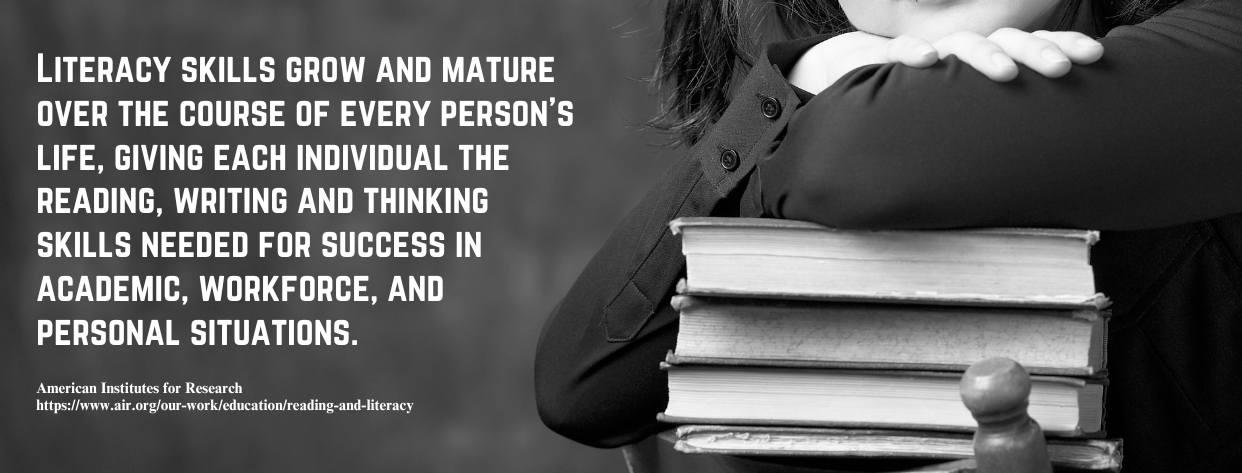
Frequently Asked Questions
Do i need teaching experience to apply for an accredited online doctorate in reading and literacy.
The majority of graduate programs require applicants to have professional experience. Some schools even go so far as to state a specific minimum experience requirement, such as two years of full-time teaching before applying to a doctoral program in reading and literacy instruction.
Who should apply for doctorates in reading and literacy programs?
Teachers with good communication skills, patience, and passion committed to enhancing kids’ lives through the power of reading and learning are the best fit for reading and literacy doctorates.
What’s the difference between EdDs and PhDs in reading and literacy programs?
An EdD in reading and literacy program is a professional practice program that focuses on how existing research can improve literacy instruction. On the other hand, PhD programs are established doctorates in social science emphasizing original research.
Key Takeaways
- Online doctorates in reading and literacy equip students with specific knowledge and valuable skills in leadership, instruction, evaluation, and literacy educational research.
- The average time-to-degree for reading and literacy online doctorates is three years, although PhD programs may take longer.
- Graduates can expect well-paying job opportunities with lots of space for professional development and personal fulfillment.
- Most online programs in reading and literacy doctorate allow online students to apply for financial aid.
Additional Resources:
- Best Grad Schools with Online Doctorate in Elementary Education
- Best Grad Schools with Online Doctorate in English Language Learning
- Best Grad Schools with Online Doctorate in Education
Related Posts

We’re certain of one thing—your search for more information on picking the best graduate degree or school landed you here. Let our experts help guide your through the decision making process with thoughtful content written by experts.
- Skip to Content
- Skip to Main Navigation
- Skip to Search

Indiana University Bloomington Indiana University Bloomington IU Bloomington

- Office Directory
- Add or Edit Profile
- Community Engagement
- Financial Management Practices
- Development and Alumni Relations
- Benefits and Services
- Employee Appreciation Programs
- The Five Functions of DEI
- Communication
- Recruitment
- DEI Dashboard
- 2020 Report
- 2019 Report
- Student Ambassadors
- Education Library
- Education Technology Services
- Graduate Studies
- Instructional Consulting
- Downloadable Resources
- Promotional Posting Guidelines
- SoE Promotional Items
- Video Production Guidelines
- Research and Development
- Records and Reporting
- Dean's Advisory Board
- Service, Leadership, and Outreach
- Student Success
- Diversity Plan
- 100th Anniversary Book
- Diversity, Equity, and Inclusion
- Targeted Engagements
- Global Gateway for Teachers
- Overseas Short-Term Study Experiences
- External Grant Opportunities
- Our Global Reach
- Faculty and Student Int'l Engagement
- IU Global Gateways
- Indiana Global Education Outreach
- Int'l Partnerships
- Visiting Int'l Scholars
- Int'l Student Ambassadors
- Academic Programs
- International Journals
- News & Events
- Int'l Student Resources
- Professional Development
- CAEP Annual Reporting Measures
- CAEP Accreditation Visit Call for Third-Party Comments
- How to View Placement Details
- How to View and Submit Evaluation Rubrics
- Linking an Embedded Signature Asessment into Canvas
- How to Create an ePortfolio on Watermark
- How to submit an assignment or assessment
- SoE Data Dashboards (Faculty)
- Licensure Requirements
- Employment Outcomes
- Employer Evaluations
- Student Teaching Survey Reports
- Attrition & Completion Rates
- Graduate Survey Results
- Indiana Teachers of the Year
- Emergency Action Plan
- SoE Emergency Information
- School Violence
- Report Facility Issue
- TEP Application Guidelines
- Non-School of Education Scholarships
- Graduate Student Funding
- Student Emergency Fund
- Campus Financial Aid Resources
- Field Trips
- Accessible Virtual Tour
- Why Be an Educator?
- Factor Future Educator Program
- Ask an Alumni
- INSPIRE Living-Learning Center
- All Programs
- License Additions
- Master's Programs
- Doctoral Programs FAQ
- Specialist Programs
- Certificate Programs
- Doctoral Minors
- Licensure Programs
- Transition to Teaching
- New Zealand
- Northern Ireland
- Navajo Nation Program
- Urban Program
- Overseas CASS Internships
- Teacher Spotlights
- IU Bloomington Students
- Guest Campus Students
- Partner Campus Students
- Student Spotlights
- Cost & Financial Aid
- Online Learning
- Tuition and Fees
- Registration
- Block Enrollment Course Information
- Student Teaching Registration Information
- Program Sheets
- Forms & Publications
- Credit Overload Request
- Four Year Plan
- Academic Calendar
- Undergraduate Bulletin
- Background Check
- Early Field Experiences
- Student Teaching Forms
- Preparation
- Frequently Asked Questions
- Student Organizations
- Student Testimonials
- Dean's List
- Report Your Concerns
- Scholarships
- Career Coaching
- Student Teaching Fair
- Health and Human Services Career Day
- Interview Day
- Explore Possibilities
- Get Experience
- Stay Connected
- Professional Distinction
- Educator Wellbeing Distinction
- Workshops and Training
- Recruiting Policies
- Classroom Presentations
- Graduation Deadlines
- Leave Policy
- Online Students
- Graduation Application
- Guidelines for Multi-Article Dissertations
- G901 Permission Request
- Qualifying Examinations
- 2024 Scholars
- 2023 Scholars
- 2022 Scholars
- 2021 Scholars
- 2020 Scholars
- Program-Specific Information
- International Student Ambassadors
- Student Affiliates in School Psychology
- Dissertation & Thesis Announcements
- Approved Core Inquiry Courses
- Holmes Scholars Program
- Initial Licensure
- License Renewal
- Licensing Outside Indiana
- Knowledge Base
- Graduate Bulletin
- Teaching with Technology Lab
- Support Services
- Volunteering Opportunities
- Faculty Directory
- Applied Psychology in Education and Research Methodology
- Curriculum and Instruction
- Chair's Welcome
- IST Conference
- Faculty Bookshelf
- Faculty Meetings
- Policies and Procedures
- Instructor Resources
- In Memoriam
- Office of Research and Development
- Spring 2024 Highlights
- Policy Reports
- Policy Briefs
- Data Visualizations
- Education Policy News
- CEEP in the News
- CEEPing Up with Education Podcast
- Evaluation Services
- Funded Research
- Research Findings
- Translation to Practice
- Equity in Action
- Overview and Project Timeline
- Analysis in Progress
- Presentations
- Accomplishments
- Teacher Study Group
- "Creative Paths to Peace" Grant
- Proffitt Internal Grant Competition
- Proffitt Summer Faculty Fellowship Program
- Tilaar Faculty Support Fund
- Cost-Share and Matching Funds on External Grant Proposals
- Current Visiting Scholars
- Become a Visiting Scholar
- Visiting Scholar Policies
- COVID-19 Entry Updates
- Faculty & Staff Giving Campaign
- Donor Spotlights
- Get Involved
- Submit a Nomination
- Alumni Magazine
- Alumni Board of Directors
- University Superintendent Search Team
- Counseling and Wellness Clinic
- Learning and Developmental Evaluation Clinic
- Current Cohort
- Past Cohorts
- Nominate a Teacher
- How to Apply
- Armstrong Teacher Panel Archive
- Current Jacobs Educators
- Past Winners
- Call for Jacobs Educator Award 2024-2025
- Advisory Board
- Teachers' Examples
- Research-to-Practice Briefs
- Speaker Series
- P-12 School Engagement
- Saturday Art School
- Past Lesson Plans
- Partners in Education (PIE)
- Maker Mobile
- Past Mentors
- HOPE Training Modules
- Nuestras personas
- Módulos de Entrenamiento de HOPE
- HOPE for Cadets
- AAC in Action
- Celebration of Excellence
- C&I Graduate Research Symposium
- Invited Sessions
- Visiting Bloomington
- Virtual Events
- Advisory Committee
- Education Law Resources
- Science Education Research Symposium
- Convocation
- Diggs Symposium
School of Education
- Doctoral Programs
Ed.D in Literacy, Culture, and Language Education (Online)
Literacy, culture, and language education, ed.d. in literacy, culture, and language education (online).
Expand your professional opportunities as you deepen your expertise in literacy and language education. This 60-credit hour online program prepares literacy and language practitioners for leadership positions in the field and provides an unparalleled environment for continual learning with colleagues who share your passion. The program features a holistic and integrative focus on preparing practitioner leaders in literacy and language to better understand and address 21st century issues and challenges.
Designed with working professionals in mind, the flexibility and convenience of the program facilitates integration with career and personal commitments. The cohort structure encourages strong relationships and emphasizes collaboration.
The primary coursework, before your dissertation focus, for the Ed.D. in Literacy, Culture, and Language Education is typically completed in three years though you will have up to seven years to complete your courses.
It is possible to transfer up to 18 graduate credits taken outside of a previous master's degree, subject to approval by your faculty advisor.
Application Deadlines
Admission requirements.
The Graduate Studies Office will accept unofficial transcripts and self-reported test scores for admission reviews. Any admission made with these documents would be conditioned on receipt of official documents, which should be provided as soon as possible.
If you are currently enrolled or have applied in the past year, you are eligible for a reduced application fee of $35. Learn more »
- Bachelor’s degree from an accredited institution
- Master’s degree from an accredited institution
- Minimum undergraduate GPA of 2.75 out of 4.00
- Personal statement
- Two letters of recommendation
- GRE scores are required only if applicant does not have a degree from an accredited U.S. institution
- Minimum 79 TOEFL score or minimum 6.5 IELTS score or minimum 115 Duolingo score (international students only)
Learn more about how to apply
Program Requirements
- Ed.D. in Literacy, Culture, and Language Education (Online) Requirements
Costs listed are per credit hour.
2023-2024 Academic Year
2024-2025 academic year.
Find more information and calculate your expected costs at Student Central .
Below is a list of potential resources for graduate students. Note: graduate assistantships are generally intended for students studying and working on the Bloomington campus.
- Learn about the variety of fellowships and assistantships available to graduate students.
- Visit Student Central for information about financial assistance.
- Consult your employer about the availability of tuition reimbursement or tuition assistance programs.
- Active duty military, veterans, and military families should visit the Center for Veteran and Military Students to take full advantage of available financial assistance and educational benefits.
- Request info
Our faculty
- LCLE Graduate Student Portal
No GRE Required
for applicants with a degree from an accredited U.S. institution
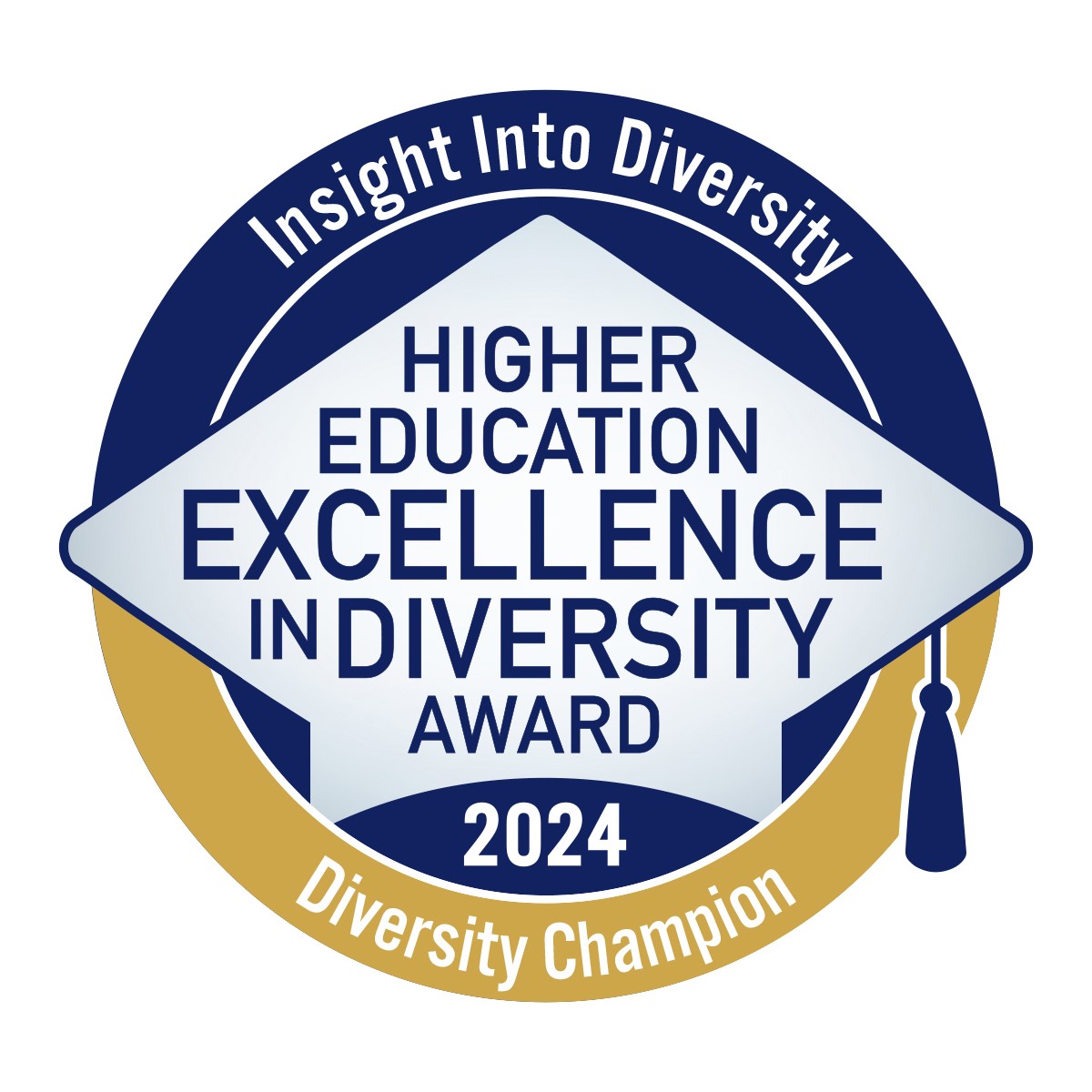
Serafín Coronel-Molina
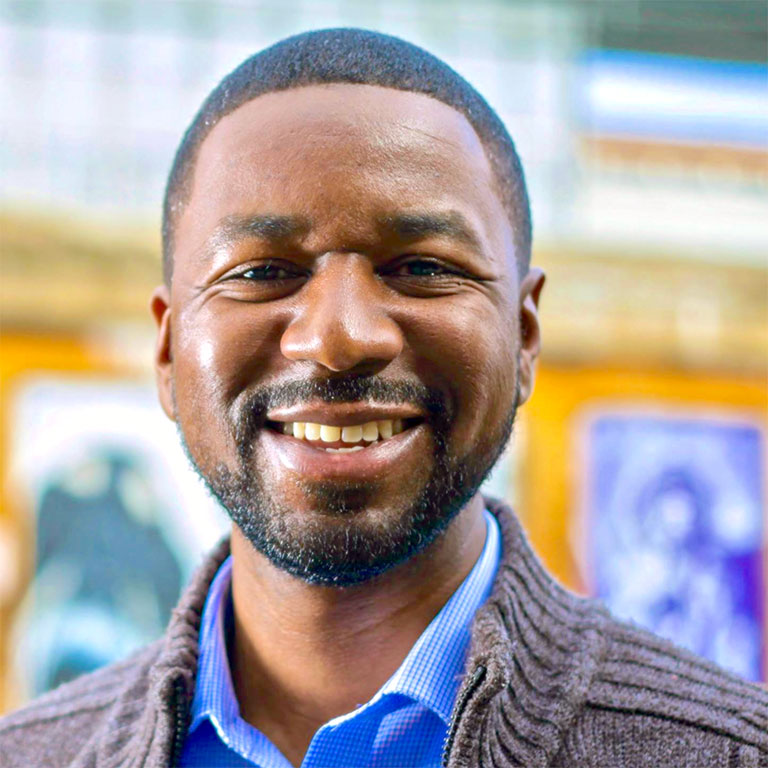
Marcus Croom
Assistant professor.
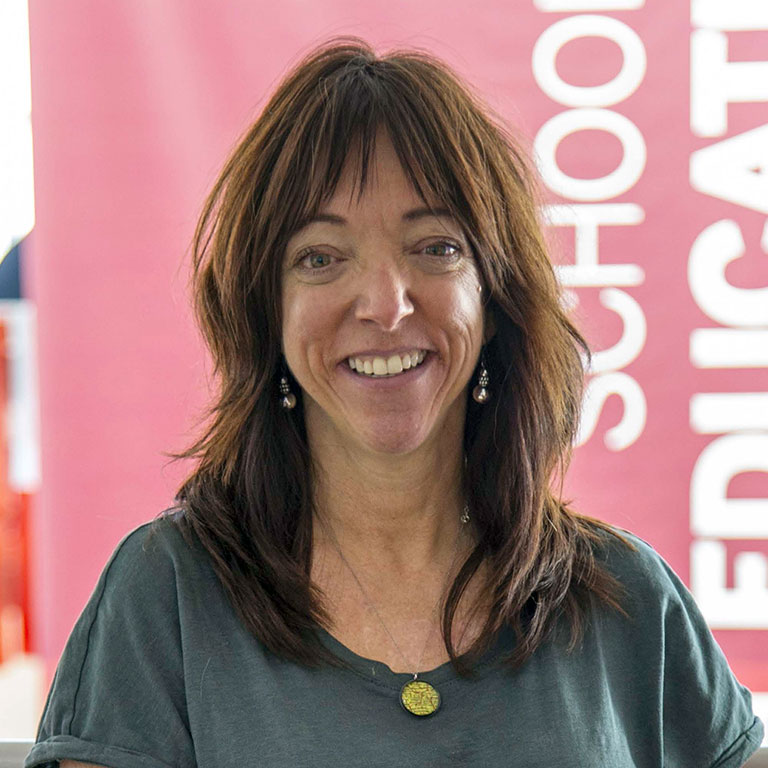
Sharon Daley
Associate clinical professor.

James Damico
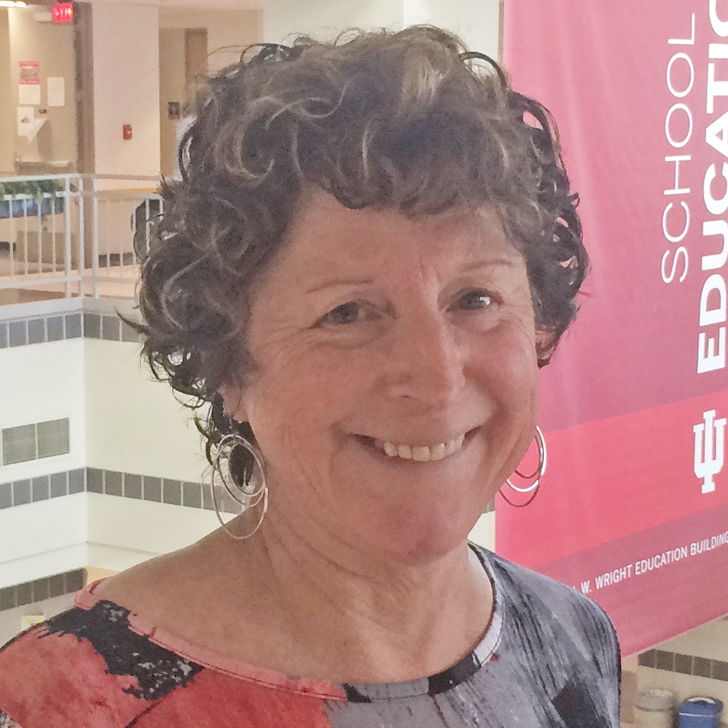
Mary Beth Hines
Associate professor and co-chair, english education program area.

Carmen Medina

Martha Nyikos
Associate professor.
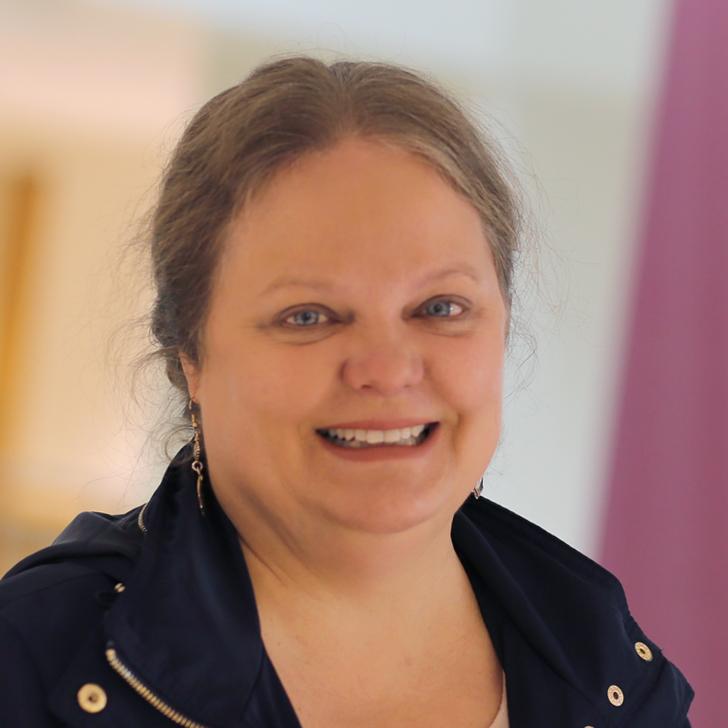
Beth Lewis Samuelson
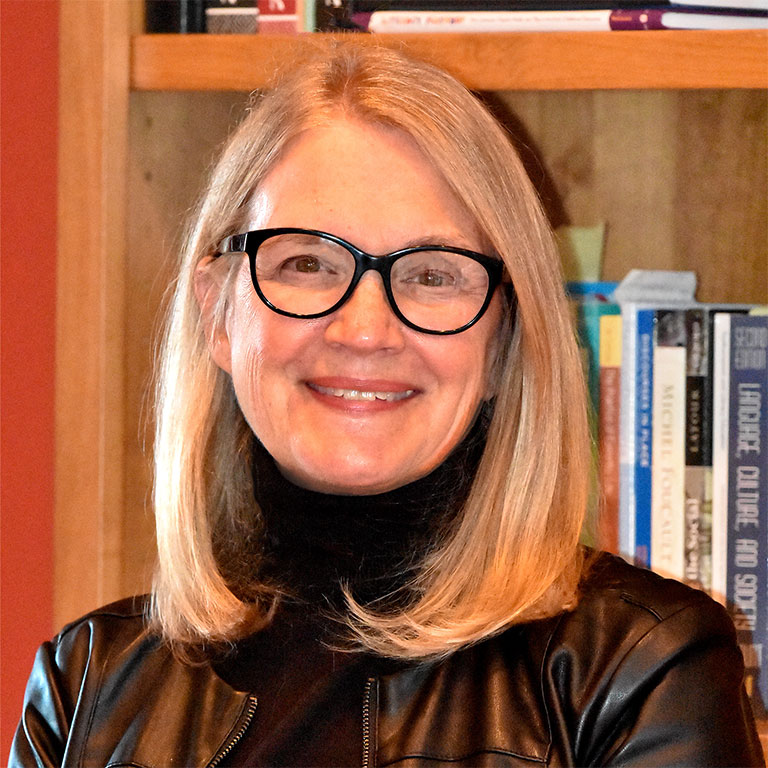
Karen Wohlwend
James Damico Professor ED 3230 damico@iu.edu
Start your life-changing journey
Additional links and resources.
- From the Dean
- Strategic Planning
- Global & International Engagement
- Accreditation
- Measures of Success
- Emergency Preparedness
- Departments
- Undergraduate
- Annual Highlights
- Research Centers
- Research Initiatives
- Visiting International Scholars
- Undergraduate Portal
- Career Connections
- Graduate Portal
- Academic Resources
- Award Programs
- Youth Programs
- Maker Education
- HOPE Mentoring
- Virtual Tour
- Visit the School
- Distinguished Alumni Award
Indiana University Bloomington School of Education
SoE Knowledge Base
SoE Intranet (Legacy)
You are using an outdated browser. This website is best viewed in IE 9 and above. You may continue using the site in this browser. However, the site may not display properly and some features may not be supported. For a better experience using this site, we recommend upgrading your version of Internet Explorer or using another browser to view this website.
- Download the latest Internet Explorer - No thanks (close this window)
- Together for Good
- Philadelphia Impact
- Global Initiatives
- Diversity & Inclusion
- Catalyst @ Penn GSE
- Penn GSE Leadership
- Penn GSE Environmental Justice Statement
- Program Finder
- Academic Divisions & Programs
- Professional Development & Continuing Education
- Teacher Programs & Certifications
- Undergraduates
- Dual and Joint Degrees
- Faculty Directory
- Research Centers, Projects & Initiatives
- Lectures & Colloquia
- Books & Publications
- Academic Journals
- Application Requirements & Deadlines
- Tuition & Financial Aid
- Campus Visits & Events
- International Students
- Options for Undergraduates
- Non-Degree Studies
- Contact Admissions / Request Information
- Life at Penn GSE
- Penn GSE Career Paths
- Living in Philadelphia
- DE&I Resources for Students
- Student Organizations
- Career & Professional Development
- News Archive
- Events Calendar
- The Educator's Playbook
- Find an Expert
- Race, Equity & Inclusion
- Counseling & Psychology
- Education Innovation & Entrepreneurship
- Education Policy & Analysis
- Higher Education
- Language, Literacy & Culture
- Teaching & Learning
- Support Penn GSE
- Contact Development & Alumni Relations
- Find a Program
- Request Info
- Make a Gift
- Current Students
- Staff & Faculty
Search form
Literacy studies, doctor of philosophy (ph.d.), you are here, a research-focused doctoral program for scholarship on reading, writing, and literacy. .
The Ph.D. program in Literacy Studies is committed to furthering knowledge in literacy and literacy education. Doctoral students construct an individualized program of study based on their areas of interest, to develop their understanding and expertise in particular aspects of the field.
This program was previously known as Reading/Writing/Literacy Ph.D. Beginning in Summer 2024, this program will be titled Literacy Studies Ph.D.
What Sets Us Apart
About the program.
In the Ph.D. program in Literacy Studies, doctoral students customize their course of study to their individual interests. Of 20 required courses, 10 of them are electives, allowing students to work with their advisors to develop a program that is best suited to the individual’s areas of interest.
4 courses per semester (fall/spring)
Culminating experience Comprehensive examination and dissertation
Duration of program 4–6 years
Transfer courses accepted Up to 8 courses with approval
The Ph.D. program in Literacy Studies emphasizes the interrelationships and integration of theory, research, policy, and practice. Doctoral students construct individual programs of study with their advisor to suit their interests, combining core courses with additional coursework in research methodology and electives.
In addition to the core doctoral courses, students focus on developing their understanding and expertise in particular aspects of the field. These aspects might include teacher education, pedagogy and curriculum, leadership, policy, urban education, multicultural education, adult and community-based literacy in and out of school, or literacy in international contexts. Throughout the program, students learn to conduct research on critical issues and problems in literacy.
In the Ph.D. program in Literacy Studies, students create individual programs of study. They are encouraged to develop one or more areas of concentration. Options include, but are not limited to:
- Teacher education and professional development
- Literacy policy and leadership
- Postsecondary learning environments
- Adult literacy education
- Reading, writing, and literacy across elementary, middle, and secondary curricula
- Children’s and adolescent literature
- Literacy practices with families, schools, and communities
- Urban education
- Digital literacies and technologies for teaching and learning
- Critical literacies
Students in the program benefit from the vast resources of the University of Pennsylvania. We encourage our doctoral students to choose electives from our program's courses, from other Penn GSE programs, and from across the University of Pennsylvania.
The program includes six required courses, four research courses, and 10 electives. For more information on courses and requirements, visit the Literacy Studies Ph.D. program in the University Catalog .
Our Faculty
Our faculty are renowned scholars and researchers who are committed to educational practice and to supporting scholar-practitioners.

"Their willingness to push to find the right solution for me ended up reshaping how I approach a lot of work I do, and gave me a unique angle with how I was coming at education and literacy."
T. Philip Nichols
Our graduates.
The Ph.D. program in Literacy Studies prepares scholar-practitioners for careers in research and teaching at colleges and universities and other educational organizations with a primary mission related to furthering knowledge in literacy and literacy education.
Alumni Careers
- Assistant Professor, Baylor University
- Assistant Professor, California State University
- Assistant Professor, North Carolina State University
- Assistant Professor, University of Connecticut
- Assistant Professor, Texas Tech
- A ssistant Professor, University of Florida
- A ssistant Professor, University of California, Davis
- Director of Undergraduate Research, University of Connecticut
- Professor, Reading Area Community College
- Visiting Assistant Professor, University of Pittsburgh
Admissions & Financial Aid
Please visit our Admissions and Financial Aid pages for specific information on the application requirements , as well as information on tuition, fees, financial aid, scholarships, and fellowships.
Contact us if you have any questions about the program.
Graduate School of Education University of Pennsylvania 3700 Walnut Street Philadelphia, PA 19104 (215) 898-6415 [email protected] [email protected]
Tamika Easley Program Manager (215) 898-3245 [email protected]
Kemba Howard Administrative Assistant (215) 898-8525 [email protected]
Please view information from our Admissions and Financial Aid Office for specific information on the cost of this program.
All Ph.D. students are guaranteed a full scholarship for their first four years of study, as well as a stipend and student health insurance. Penn GSE is committed to making your graduate education affordable, and we offer generous scholarships, fellowships, and assistantships.
Related News & Research
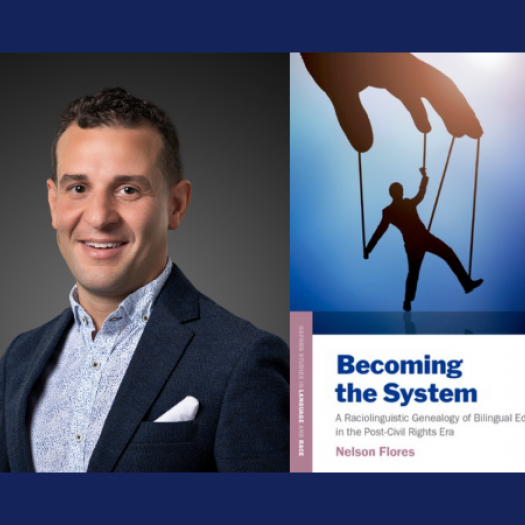
Nelson Flores examines bilingual education in new book
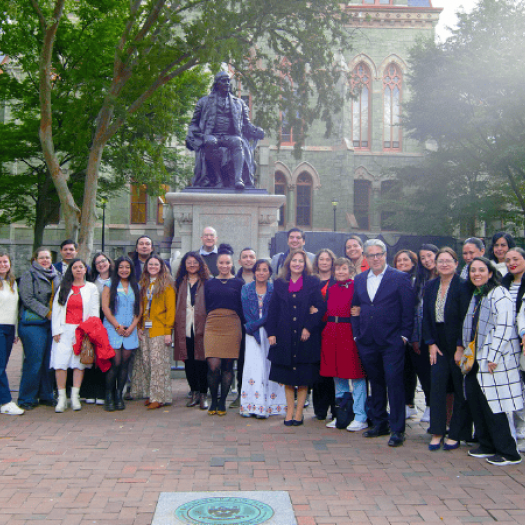
Penn GSE, University of Guadalajara extend partnership to enhance literacy and civic engagement

Four ways to open dialogue

Philly teachers explore education in the age of AI at PhilWP’s annual Celebration of Writing and Literacy

Collaboratory for Teacher Education
The Collaboratory for Teacher Education at Penn GSE is a laboratory for the design, implementation, and study of experimental approaches to teacher education.
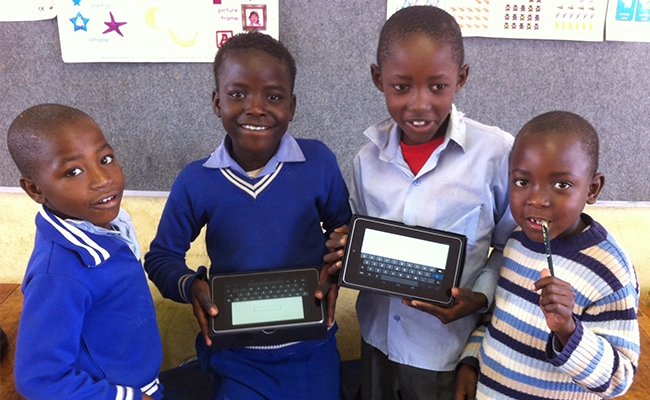
Literacy.org: National Center for Adult Literacy/International Literacy Institute
The National Center for Adult Literacy (NCAL) focuses on research, innovation, and training in adult education and technology. The International Literacy Institute (ILI), established by UNESCO and Penn in 1994, provides leadership in research, development, and training in the broad field of international literacy and...
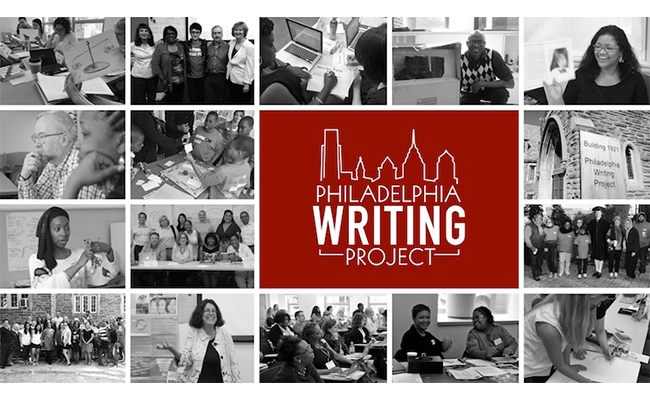
Philadelphia Writing Project
The Philadelphia Writing Project (PhilWP) is network of over 800 teacher consultants who work with teachers and other educators to explore literacy, writing, teaching, and learning in their classrooms and schools regardless of grade or discipline.
You May Be Interested In
Related programs.
- Education, Culture, and Society Ph.D.
- Literacy Studies M.S.Ed.
- Literacy Studies Ed.D.
- Teaching, Learning, and Teacher Education Ph.D.
- Teaching, Learning, and Teacher Education Ed.D.
Related Topics
Ready to Apply?
Literacy, Culture, and Language Education, Ed.D.
Deepen your expertise in literacy and language education and expand your professional opportunities with IU Online’s Ed.D. in Literacy, Culture, and Language Education. This fully online and flexible program prepares literacy and language educators for leadership roles.
- Request Info

Course Delivery : 100% Online
Total Credits : 60
In-State Tuition Per Credit : $520.17
Out-of-State Tuition Per Credit : $623.49
Cost of attendance may vary by campus. View the total cost calculator

Degree Overview
The IU Online Doctor of Education in Literacy, Culture, and Language Education features a holistic and integrative focus on preparing you to better understand and address the issues and challenges facing today’s educators.
Designed with working professionals in mind, the program facilitates integration with career and personal commitments. Its cohort structure encourages strong relationships and emphasizes collaboration.
As a student in the program, you’ll benefit from a career-focused program. You’ll graduate with an Indiana University degree respected by employers worldwide—and you can work on yours anytime and anywhere. Plus, you’ll enjoy personalized support services throughout your academic journey.
And the benefits start long before graduation. More than half of IU Online students advance in their careers before they complete their degree.
To be accepted to this program, you must have:
- Bachelor’s degree from an accredited institution
- Master’s degree from an accredited institution
- Minimum undergraduate GPA of 2.75 out of 4.00
To apply to this program:
Complete an online application that includes:
- Transcripts
- Personal statement
- Two letters of recommendation
- GRE scores (required only if applicant does not have an undergraduate or graduate degree from an accredited U.S. institution)
- Minimum 79 TOEFL score or minimum 6.5 IELTS score (international students only)
Career Outcomes
Your IU Online Ed.D. in Literacy, Culture, and Language Education prepares you for such careers as:
- English teacher
- ESL/EFL teacher
- Literacy program director
- Language education specialist
- Reading specialist
- Instructional materials writer
- Instructional materials editor
Degree Requirements
To graduate with the Ed.D. in Literacy, Culture, and Language Education, you must complete 60 credit hours. You can transfer up to 18 graduate credits taken outside of a previous master's degree, subject to approval by your faculty advisor. The program does not require an internship or practicum.
Requirements are broken down as follows:
- LCLE core courses (27 credit hours)
- Inquiry courses (9 credit hours)
- Minor courses (9 credit hours)
- Elective courses (6 credit hours)
- Dissertation courses (9 credit hours)
Find course descriptions with our Search Schedule of Classes/Courses tool .
Find the answers you need or start your application. We’re here to help!
- Request more information
Apply now link and Social media
- Facebook for IU
- Linkedin for IU
- Twitter for IU
Give Feedback
Ph.D. in Literacy: Curriculum
Curriculum details.
42 total credits required
St. John’s University’s online Ph.D. in Literacy program incorporates a holistic focus on addressing the needs of at-risk learners. This 42-credit hour program includes research, literacy, and concentration courses that are completed prior to a dissertation project that on average takes one year of time, which requires continuous enrollment until completion. The Ph.D. curriculum includes:
- Core literacy courses: 18 credit hours
- Research core courses: 15 credit hours
- Specialization courses: 9 credit hours
- Dissertation supervision required each semester until you graduate
Students may choose from one of two specializations. Read the specific courses below or click on a specialization title to learn more:
- TESOL and Bilingual Education
Core Literacy Courses
Research core courses, teaching english to speakers of other languages (tesol) concentration, literacy specialization, plus, one below for the literacy specialization.
This course is designed to instruct teachers to develop effective Literacy/ English language Arts skills for middle school and adolescent students. Teachers will learn to incorporate the Common Core State Standards in writing, grammar, speaking, listening and reading. Teachers will learn to use multisensory materials and technology to enhance children’s reading to writing and writing to reading skills. They will also demonstrate their knowledge for teaching writing in a variety of original, imaginative works, as well as, narrative and expository texts, that observe conventions of genres and use of figurative language and text structure. Teachers will enable their students to communicate clearly to an external improving their form, content and style of writing using appropriate language and grammar.
This course is designed to instruct teachers to develop effective Literacy/ English language Arts skills for early childhood and elementary school children. Teachers will learn to incorporate the Common Core State Standards in writing, grammar, speaking, listening and reading. Teachers will learn to use multisensory materials and technology to enhance children’s reading to writing and writing to reading skills. They will also demonstrate their knowledge for teaching writing in a variety of original, imaginative works, as, well as, narrative and expository texts that observe conventions of genres and use of figurative language and text structure. Teachers will enable their children to communicate clearly to an external audience improving their form, content and style of writing using appropriate language and grammar.
This course is designed to instruct teachers to develop effective Literacy/ English language Arts skills for early childhood, elementary, middle school and adolescent students. Teachers will learn to incorporate the Common Core State Standards in writing, grammar, speaking, listening, and reading. Teachers will learn to use multisensory materials and technology to enhance children’s reading to writing and writing to reading skills. They will also demonstrate their knowledge for teaching writing in a variety of original, imaginative works, as well as, narrative and expository texts, that observe conventions of genres and use of figurative language and text structure. Teachers will enable their students to communicate clearly to an external audience improving their form, content and style of writing using appropriate language and grammar. Fee $25.
Advance your career with an online graduate degree from St. John’s University. Contact us at 844-393-1677 or Request More Information today!
Request More Information
To learn more about our online degree programs, complete the form below. A St. John’s Admissions Counselor will contact you soon.
All fields required

IMAGES
COMMENTS
61st Best Online Education Graduate Programs 1 Literacy is the foundation of all learning. Prepare to help students from diverse backgrounds overcome barriers to reading proficiency and succeed throughout their entire educational career with the Ph.D. in Literacy program at St. John's University—one of the nation's only online doctorate ...
Capella's online Doctor of Education (EdD), Reading and Literacy degree is designed to prepare you to lead literacy programs and advocate for systemic change in education. You'll develop the knowledge and skills needed to work with diverse populations as a reading specialist, coach, coordinator, or program supervisor.
Appalachian State University's online EdD in Literacy and Exceptionalities is among the top programs for graduate students seeking advanced reading and literacy education training. The program's coursework focuses on teaching education professionals to use multimodal expressive arts theory and inquiry in pre-K-12 settings.
Expand your professional opportunities as you deepen your expertise in literacy and language education. This 60-credit hour online program prepares literacy and language practitioners for leadership positions in the field and provides an unparalleled environment for continual learning with colleagues who share your passion.
Offered on campus or online, the PhD in Literacy program prepares you for research and teaching positions in universities, colleges, community colleges, research institutions, policy centers, state education departments and P-12 school districts. ... Graduate Education Courses. In the PhD program, up to 30 credit hours of coursework will come ...
EDUCATION DOCTORAL PROGRAMS Walden is the #1 conferrer of doctoral degrees in education in the U.S. Doctor of Education (EdD) ... curriculum, assessment, and instruction for diverse learners; changing definitions of literacy; best practices in literacy; and program design and evaluation. This specialization is designed for classroom teachers ...
The Ph.D. program in Literacy Studies is committed to furthering knowledge in literacy and literacy education. Doctoral students construct an individualized program of study based on their areas of interest, to develop their understanding and expertise in particular aspects of the field. This program was previously known as Reading/Writing ...
To graduate with the Ed.D. in Literacy, Culture, and Language Education, you must complete 60 credit hours. You can transfer up to 18 graduate credits taken outside of a previous master's degree, subject to approval by your faculty advisor. The program does not require an internship or practicum. Requirements are broken down as follows:
A professional doctorate, like Walden's online Doctor of Education (EdD), is designed for working professionals with practical experience in their field. Professionals often choose a doctoral program to increase their knowledge, enhance their résumé, and translate their work experience into a higher position of credibility, leadership, and ...
Curriculum Details. 42 total credits required. St. John's University's online Ph.D. in Literacy program incorporates a holistic focus on addressing the needs of at-risk learners. This 42-credit hour program includes research, literacy, and concentration courses that are completed prior to a dissertation project that on average takes one year of time, which requires continuous enrollment ...